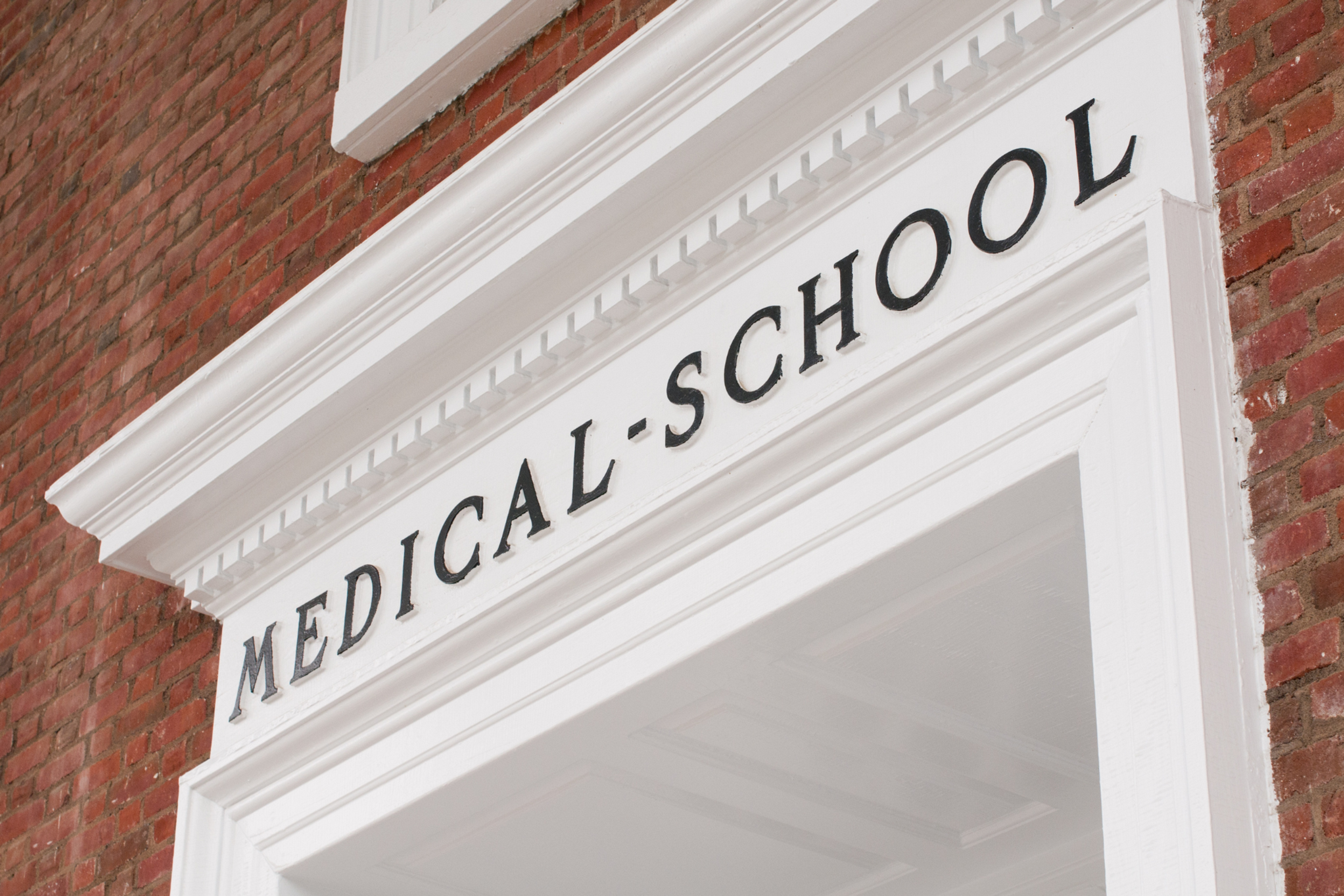Medical School Prerequisites: Courses, Work Experience, Test Scores, and Everything Else You Need to Get In
If you're considering applying to medical school, it's important to know the prerequisites required for admission.
Posted March 20, 2025

Table of Contents
Getting into medical school is both challenging and rewarding. Understanding and fulfilling the prerequisites is crucial to ensure a successful application. This comprehensive guide outlines the essential academic and non-academic requirements, with a particular focus on coursework, to help you navigate the path to becoming a medical student.
Read: The Ultimate Guide on How to Get Into Medical School
An Overview of the Medical School Admission Requirements
Medical schools assess applicants on various criteria, including academic performance, clinical experience, extracurricular activities, and personal attributes. Each institution may have specific requirements, so it's essential to research individual medical school admission requirements. A strong foundation in the medical school application process is vital for success.
Essential Academic Prerequisites
A bachelor's degree from an accredited institution is a standard requirement for medical school applicants. While there's no mandated pre-med major, selecting a field that encompasses the necessary prerequisite courses is advisable. Commonly required courses include:
- Biology: Typically, two semesters with laboratory components. This foundational knowledge is crucial for understanding human physiology and disease mechanisms.
- General Chemistry: Two semesters with labs. These courses introduce chemical principles essential for medical studies.
- Organic Chemistry: Two semesters with labs. Understanding the structure and function of organic molecules is vital for grasping biochemical processes.
- Physics: Two semesters with labs. Physics principles underpin many physiological processes and medical technologies.
- Mathematics: At least one semester, often focusing on statistics or calculus. These skills are important for data analysis in medical research.
- English: Two semesters to enhance communication skills, which are crucial for patient interactions and medical documentation.
Some medical schools may also require or recommend courses in biochemistry, psychology, sociology, and the humanities to provide a well-rounded education. For example, the University of Minnesota Medical School requires seven prerequisite courses, including biology with lab, chemistry, and biochemistry.
Variations Among Top Medical Schools
While many medical schools have similar prerequisites, there are notable differences among top programs:
- Harvard Medical School: Requires two years of chemistry (including inorganic chemistry, organic chemistry, and biochemistry) with lab experience.
- Stanford University School of Medicine – Strongly encourages courses in biochemistry, statistics, and behavioral sciences. While there are no strict course requirements, applicants are expected to demonstrate proficiency in foundational sciences.
- NYU Grossman School of Medicine – Requires two semesters each of biology, general chemistry, and organic chemistry, all with labs, as well as one semester of biochemistry. They also emphasize a holistic admissions approach, considering non-traditional coursework and experiences.
- Yale School of Medicine – Recommends rigorous coursework in biology, chemistry, and physics, with an emphasis on interdisciplinary courses such as molecular biology, genetics, and biochemistry. While there are no formal requirements, successful applicants typically have extensive science coursework.
- Mayo Clinic Alix School of Medicine – Requires one year each of biology and chemistry (with labs) and strongly recommends coursework in biochemistry, statistics, and psychology. Mayo also values research and healthcare-related experiences.
- UCLA School of Medicine – Requires a minimum of one year of biology, two years of chemistry (including organic and biochemistry), and one year of physics, all with labs. UCLA also places emphasis on public health and social sciences coursework.
- Georgetown University School of Medicine – Requires two semesters each of biology, general chemistry, organic chemistry, and physics, all with labs, plus one semester of biochemistry. The school strongly encourages behavioral sciences and humanities coursework to support a holistic understanding of patient care.
- University of Washington School of Medicine: Requires one year of biology and chemistry/biochemistry, with lab experience recommended.
- University of Texas Health Professions Office: Recommends specific coursework in biology, chemistry, physics, math, and English, with detailed credit hour requirements.
These variations highlight the importance of consulting each school's specific requirements during your application process.
Read: A Guide to the T20 Medical Schools in the U.S.
The Role of the Medical College Admission Test (MCAT)
The MCAT is a standardized exam assessing knowledge in biology, chemistry, physics, psychology, and critical analysis. A competitive MCAT score is crucial for medical school acceptance. Preparation should involve a thorough review of prerequisite subjects and practice exams.
Read: MCAT Test: What You Need to Know and How to Prepare
Clinical Experience
Clinical experience is one of the most important factors in a medical school application. Admissions committees want to see that you understand what it means to work in healthcare and have interacted with patients in real-world settings. The best way to gain this experience is through shadowing, volunteering, working in clinical roles, or engaging in research.
- Shadowing physicians allows you to observe how doctors interact with patients, make medical decisions, and handle ethical dilemmas. It’s best to shadow multiple specialists to get a broader understanding of different fields. Taking notes on patient interactions and treatment approaches can help you later when writing your personal statement or preparing for interviews.
- Volunteering in hospitals, nursing homes, or free clinics is another great way to gain patient exposure. Many medical schools strongly encourage direct involvement with patients, whether it's comforting families, assisting in community health programs, or participating in medical mission trips. Some students take on paid clinical roles such as medical scribes, EMTs, certified nursing assistants (CNAs), or phlebotomists. These positions provide valuable hands-on experience while also helping you build confidence in patient care.
- Another crucial component is research experience, especially if you’re considering a highly competitive medical program. Whether you work in a lab, participate in clinical trials, or co-author research publications, engaging in medical studies strengthens your ability to think critically and contribute to the field of medicine. Many schools value applicants who have explored research opportunities in fields such as molecular biology, public health, or behavioral sciences.
Medical schools look for well-rounded applicants who have spent time in real healthcare environments. Whether you gain experience through shadowing, volunteering, working, or research, the key is to reflect on what you’ve learned and how it has shaped your understanding of medicine.
Compelling Personal Statement
Your personal statement is one of the most important parts of your application because it gives admissions committees a deeper understanding of who you are. Rather than simply listing accomplishments, it should tell a story about your journey to medicine.
Start by reflecting on what inspired you to pursue this path. Was there a defining moment that confirmed your passion for medicine? Did a particular clinical or volunteer experience leave a lasting impact? The best personal statements show growth, perseverance, and a clear connection between past experiences and future goals.
Avoid generic statements like “I want to help people” and instead focus on personal anecdotes that highlight your strengths. Whether it’s overcoming a challenge, demonstrating leadership, or making a meaningful connection with a patient, your statement should be memorable and unique.
Lastly, proofread carefully and ask professors, mentors, or peers to review it. A well-written personal statement can set you apart from thousands of other applicants.
Read: How to Write a Powerful Personal Statement for Medical School
Strong Letters of Recommendation
Letters of recommendation play a key role in medical school admissions. They provide an outside perspective on your academic abilities, character, and readiness for the demands of medical school.
The best letters come from people who know you well—such as professors, research mentors, or physicians you’ve shadowed. Instead of asking for a generic letter, choose individuals who can speak in detail about your strengths. If possible, provide them with your resume, personal statement, or a list of key experiences to help them write a strong and personalized letter.
Timing is also important. Try to request letters at least 6-8 weeks in advance to give your recommenders enough time to write a thorough and thoughtful evaluation. Most medical schools require at least three letters, typically from science professors, clinical supervisors, or research mentors.
A strong letter of recommendation can reinforce your strengths and make your application stand out, so take the time to choose your recommenders wisely and give them the information they need to write a compelling letter.
Learn more here: How to Write an Effective Medical School Letter of Recommendation
The Application Process
Applying to medical school is a multi-step process that requires careful planning and organization. Here’s a breakdown of the key stages:
1. Primary Application (AMCAS, AACOMAS, TMDSAS)
The first step is submitting a primary application through a centralized service:
- AMCAS (American Medical College Application Service) – Used by most U.S. allopathic (MD) programs.
- AACOMAS (American Association of Colleges of Osteopathic Medicine Application Service) – Used for osteopathic (DO) programs.
- TMDSAS (Texas Medical & Dental Schools Application Service) – Used by public medical schools in Texas.
Your primary application includes:
- Academic Record – Transcripts from all undergraduate and post-baccalaureate coursework.
- Medical College Admission Test (MCAT) Scores – Required for most U.S. medical schools.
- Personal Statement – A written essay explaining why you want to pursue medicine.
- Work & Activities Section – A list of your clinical experience, research, volunteering, leadership roles, and extracurricular activities.
- Letters of Recommendation – Submitted through AMCAS Letter Service or directly to schools.
Once submitted, the AMCAS application is verified, meaning your transcripts are reviewed to ensure accuracy before being sent to medical schools.
2. Secondary Applications
After receiving your primary application, medical schools review it and send secondary applications to selected applicants. These applications often include:
- Additional Essays – Schools ask about specific topics like diversity, your interest in their program, or challenges you’ve overcome.
- School-Specific Questions – Some institutions require responses tailored to their unique mission or values.
- Secondary Application Fees – Most schools charge a fee to submit secondaries, though some applicants qualify for fee waivers.
Tip: Many secondary applications are sent automatically, meaning you should prepare for them in advance and submit them quickly (ideally within 2 weeks).
3. Interview Invitations
If a medical school is interested in your application, you’ll receive an invitation for an interview. There are two main types:
- Traditional Interviews – One-on-one or panel-style interviews with faculty, physicians, or current students.
- Multiple Mini Interviews (MMI) – A series of short, timed scenario-based stations that assess problem-solving, ethical reasoning, and interpersonal skills.
Interviews are often conducted in person or virtually, and preparation is key. Schools use this opportunity to assess not just your academic qualifications but also your communication skills, professionalism, and fit for their program.
4. Admissions Decisions
After interviews, medical schools will notify applicants of their admissions decisions:
- Acceptance – Some students receive early acceptances, while others are placed on a rolling basis.
- Waitlist – Applicants may be placed on a waitlist, meaning they could be offered a spot later.
- Rejection – If not admitted, applicants can improve their credentials and reapply in future cycles.
How Top Medical School Coaches Can Help You Succeed
Preparing for medical school is a complex and highly competitive process. From fulfilling prerequisite coursework to gaining clinical experience and crafting a standout application, every step requires careful planning and execution. While self-preparation is possible, working with top medical school coaches can give you a significant advantage in this process.
Medical school admissions experts provide personalized guidance to help you:
- Select the right coursework to meet medical school requirements and strengthen your academic foundation.
- Maximize your clinical and research experiences to showcase a well-rounded application.
- Craft a compelling personal statement that highlights your unique journey to medicine.
- Prepare for interviews through mock sessions and expert feedback on your responses.
- Navigate the application process strategically, ensuring timely submissions and strong secondary essays.
By leveraging the knowledge and experience of top medical school admissions coaches, you can avoid common mistakes, refine your application to stand out, and increase your chances of acceptance into your dream medical school. If you’re serious about securing a spot in a competitive program, seeking professional coaching could be the key to success.
Read next:
- Med School Scholarships: A Comprehensive Resource Guide
- Medical School Acceptance Rates, GPA, and MCAT Scores of the Top 15 Programs
- Mastering Medical School Interviews: Questions and Strategies
- How Many Medical Schools Should I Apply To? A Strategic Approach
- Which Medical Schools Require the CASPer: A Guide
FAQs
Can I apply to medical school without a science major?
- Yes, medical schools accept applicants from diverse academic backgrounds. While a strong foundation in the sciences is essential, students with majors in the humanities, social sciences, or arts can apply, provided they complete the required prerequisite courses.
How does my undergraduate institution's prestige affect my medical school application?
- Admissions committees consider various factors, including GPA, MCAT scores, and extracurricular activities, over the prestige of your undergraduate institution. Demonstrating academic excellence and relevant experiences is more crucial than the school's name.
Are online courses acceptable for fulfilling prerequisite requirements?
- Acceptance of online coursework varies by medical school. Some institutions may accept online courses, especially if taken from accredited institutions, while others may prefer traditional in-person classes. It's essential to check each school's specific policies.
Is there a time limit on when prerequisite courses must be completed?
- Some medical schools require that prerequisite courses be completed within a certain timeframe, typically within the last 5 to 10 years. This ensures that applicants' knowledge is current. Check individual school requirements for specifics.
Do medical schools accept Advanced Placement (AP) credits for prerequisites?
- Policies on AP credits vary among medical schools. Some may accept AP credits to fulfill prerequisites, while others may require college-level coursework regardless of AP credits earned in high school. Verify each school's stance on AP credits.
How important is clinical experience in the application process?
- Clinical experience is crucial as it demonstrates your understanding of the medical profession and your commitment to patient care. Medical schools look for applicants with hands-on experience in healthcare settings.
What role do letters of recommendation play in my application?
- Letters of recommendation provide insight into your academic abilities, character, and suitability for a medical career.












